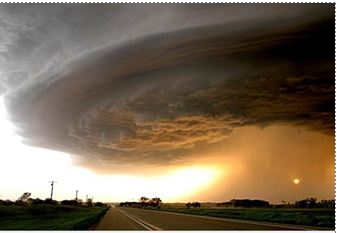I am a midlist novelist, and I have an idea for a new book. It's one of the best phases of the creative process - the moment when the swirling cloud of images and concepts and characters begins to coalesce into something I can define. 
 That book - my sixth -- was supposed to be my "breakout" book. I was supposed to be writing this next book in the wake of an uptick in sales. But I'm not. I'm in the strange position of being a seasoned writer facing new-writer odds. I am at the top of my game, creatively speaking, but I have to earn my way into the tournament bracket.
That book - my sixth -- was supposed to be my "breakout" book. I was supposed to be writing this next book in the wake of an uptick in sales. But I'm not. I'm in the strange position of being a seasoned writer facing new-writer odds. I am at the top of my game, creatively speaking, but I have to earn my way into the tournament bracket.
And the tournament? The world of publishing itself? It's the Wild West out there. No one knows what book publishing will look like in one, two, or ten years. Heck, no one knows what's going on with book publishing today. Stephanie Meyer gave away an online version of The Short Second Life of Bree Tanner for free a few weeks ago, and while people debated whether or not the give-away would hurt sales, the physical book became an instant bestseller. (That's what I mean about wild. Give away a book? Wired magazine's Chris Anderson argued that free is the future in his book, Free, and marketing guru Seth Godin concurred, all of which leaves a midlist novelist reeling and wishing for an advanced degree in economics.) "You should write a book like that," well-meaning friends tell me - referring to Meyers' megahits, or James Patterson's megahits, or some other brand name author's megahits. What they mean is that I should make a calculated effort to try to outsmart the entire sprawling, ever-changing book-buying marketplace; to figure out what a Big Book will be when everyone has a Kindle and when novels sell for a dollar each and come packaged with graphics and video and whiz-bang sound effects (Still vampires? More wizards? Visions of Armageddon?) and to write that book before anyone else thinks of it first -- my style and aesthetics and that swirling cloud of possibility in my head be damned.
That's not happening. It's not what I'm in this business to do. I'm in it because there are stories in my head that need to be told, and I am good at telling them, and I believe that there are people out there who are eager to read them, no matter how the industry changes. I think it's the responsibility of writers to understand the marketplace, and adapt to it, even while we try to preserve the integrity of the creative process. Musicians have had to do it; now it's our turn.
So I'm starting work on my new book idea. What I have is a real-life newspaper article about violinist Joshua Bell that caught my eye several years ago and refused to loosen its' hold and a family all dealing with industries that have failed or are failing them (newspaper reporting, classical music, libraries, college admissions.)  I also have a quote by poet Billy Collins on the wall behind my desk, to galvanize me as I write about families and failure and music -- not the sexiest topics, not topics guaranteed to sell, but the topics that are speaking to me right now: "My poetry is suburban, it's domestic, it's middle class, and it's sort of unashamedly that."
I also have a quote by poet Billy Collins on the wall behind my desk, to galvanize me as I write about families and failure and music -- not the sexiest topics, not topics guaranteed to sell, but the topics that are speaking to me right now: "My poetry is suburban, it's domestic, it's middle class, and it's sort of unashamedly that."
And, finally, I'm making a commitment to chronicle the process of making and selling a novel here, if only to show would-be novelists that while the winds of change are whipping around us, what you need to tell a story -- vision, intuition, permission, persistence, perception, faith and courage, as well as characters who are authentic and a structure that makes sense and sentences that sing -- remains exactly the same as it's always been.
Photo of Katrina by Laura Hendryx.